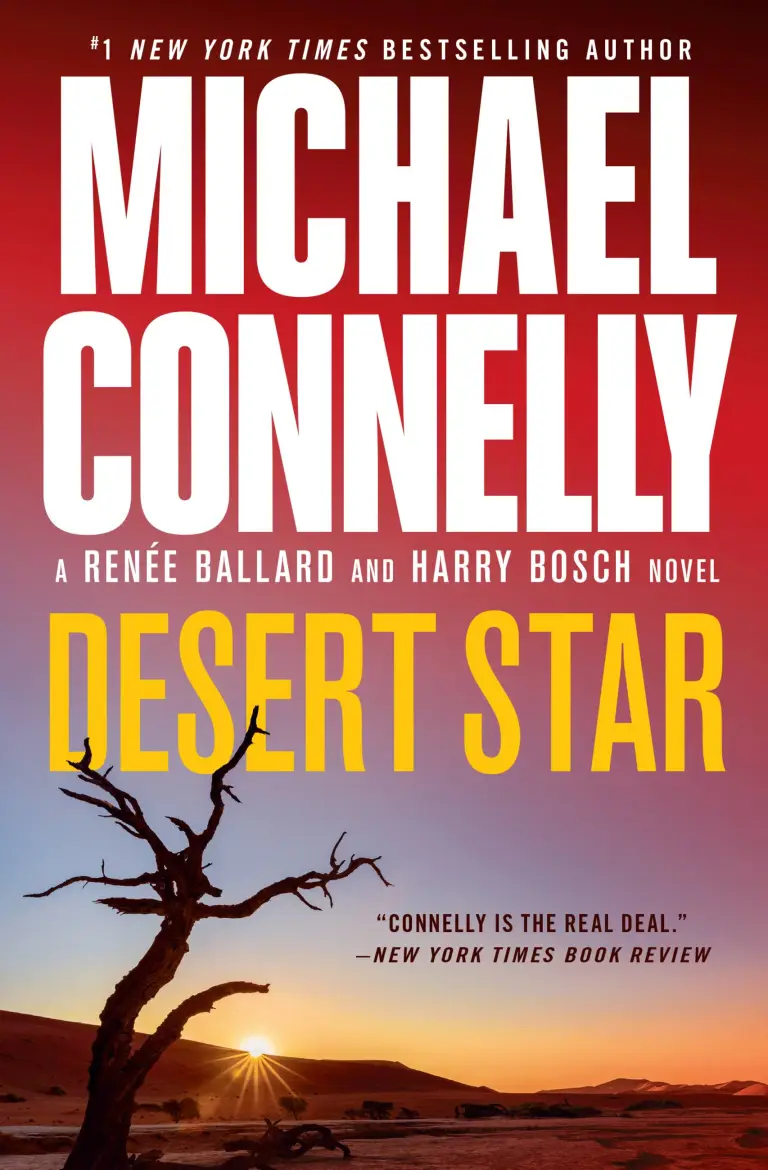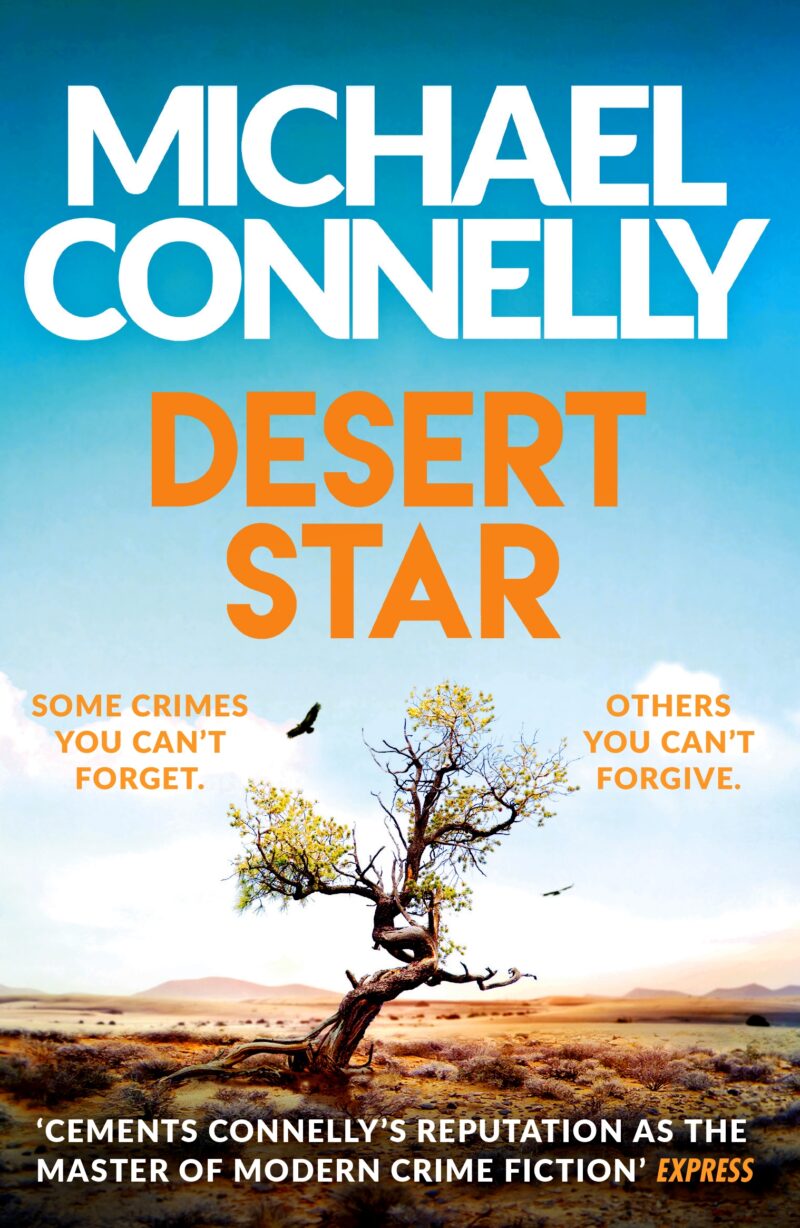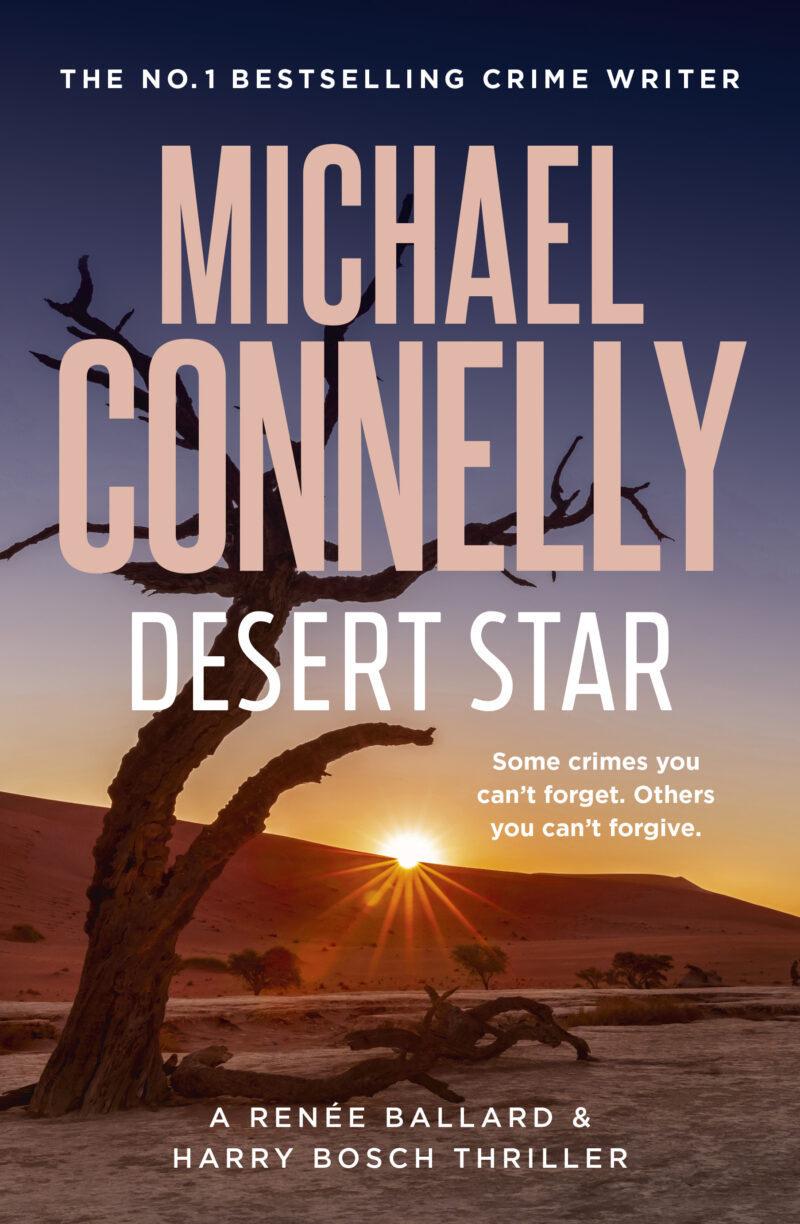Desert Star Excerpt
1
Bosch had the pills lined up on the table ready to go. He was pouring water from the bottle into the glass when the doorbell rang. He sat at the table, thinking he would let it go. His daughter had a key and never knocked, and he wasn’t expecting anyone. It had to be a solicitor or a neighbor, and he didn’t know any of his neighbors anymore. The neighborhood seemed to change over every few years, and after more than three decades of it, he had stopped meeting and greeting newcomers. He actually enjoyed being the cranky old ex-cop in the neighborhood whom people were afraid to approach.
But then the second ring was accompanied by a voice calling his name. It was a voice he recognized.
“Harry, I know you’re in there. Your car’s out front.”
He opened the drawer under the table. It contained plastic utensils, napkins, and chopsticks from takeout bags. With his hand he swept the pills into the drawer and closed it. He then got up and went to the door.
Renée Ballard stood on the front step. Bosch had not seen her in almost a year. She looked thinner than he remembered. He could see where her blazer had bunched over her sidearm on her hip.
“Harry,” she said.
“You cut your hair,” he said.
“A while ago, yeah.”
“What are you doing up here, Renée?”
She frowned as though she had expected a warmer reception. But Bosch didn’t know why she would have, after the way things had ended last year.
“Finbar,” she said.
“What?” he said.
“You know what. Finbar McShane.”
“What about him?”
“He’s still out there. Somewhere. You want to try to make a case with me, or do you want to just stand on your anger?”
“What are you talking about?”
“If you let me in, I can tell you.”
Bosch hesitated but then stepped back and held up an arm, grudgingly signaling her to enter.
Ballard walked in and stood near the table where Bosch had just been sitting.
“No music?” Ballard asked.
“Not today,” Bosch said. “So, McShane?”
She nodded, understanding that she had to get to the point.
“They put me in charge of cold cases, Harry.”
“Last I heard, the Open-Unsolved Unit was canceled. Disbanded because it wasn’t as important as putting uniforms on the street.”
“That’s true but things change. The department is under pressure to work cold cases. You know who Jake Pearlman is, right?”
“City councilman.”
“He’s actually your councilman. His kid sister was murdered way back. It was never solved. He got elected and found out the unit was quietly disbanded and there was nobody looking at cold cases.”
“And so?”
“And so I got wind of it and went to the captain with a proposal. I move over from RHD and reconstitute the Open-Unsolved Unit—work cold cases.”
“By yourself?”
“No, that’s why I’m here. The tenth floor agreed: one sworn officer—me—and the rest of the unit composed of reserves and volunteers and contract players. I didn’t come up with the idea. Other departments have been using the same model for a few years and they’re clearing cases. It’s a good model. In fact, it was your work for San Fernando that made me think of it.”
“And so you want me on this…squad, or whatever you’re calling it. I can’t be a reserve. I wouldn’t pass the physical. Run a mile in under six minutes? Forget it.”
“Right, so you’d volunteer or we’d make a contract. I pulled all the murder books on the Gallagher case. Six books for four murders—more stuff than you took with you, I’m sure. You could go back to work—officially—on McShane.”
Bosch thought about that for a few moments. McShane had wiped out the whole Gallagher family in 2013 and buried them in the desert. But Bosch had never been able to prove it. And then he retired. He hadn’t solved every case he’d been assigned in almost 30 years working murders. No homicide detective ever did. But it was a whole family. It was the one case he hated most to leave on the table.
“You know I didn’t leave on good terms,” he said. “I walked out before they could throw me out. Then I sued them. They’ll never let me back in the door.”
“If you want it, it’s a done deal,” Ballard said. “I already cleared it before I came here. It’s a different captain now and different people. I have to be honest, Harry, not a lot of people there know about you. You been gone, what, five years? Six? It’s a different department.”
“They remember me up on ten, I bet.”
The tenth floor of the Police Administration Building was where the Office of the Chief of Police and most of the department’s commanders were located.
“Well, guess what, we don’t even work out of the PAB,” Ballard said. “We’re out in Westchester at the new homicide archive. Takes a lot of the politics and prying eyes out of it.”
That intrigued Bosch.
“Six books,” he said, musing out loud.
“Stacked on an empty desk with your name on it,” Ballard said.
Bosch had taken copies of many documents from the case with him when he retired. The chrono and all the reports he thought were most important. He had worked the case intermittently since his retirement but had to acknowledge he had gotten nowhere with it, and Finbar McShane was still out there somewhere and living free. Bosch had never found any solid evidence against him but he knew in his gut and in his soul that he was the one. He was guilty. Ballard’s offer was tempting.
“So I come back and work the Gallagher Family case?” he said.
“Well, you work it, yeah,” Ballard said. “But I need you to work other cases too.”
“There’s always a catch.”
“I need to show results. Show them how wrong they were to disband the unit. The Gallagher case is going to take some work—six books to review, no DNA or fingerprint evidence that is known. It’s a shoe-leather case, and I’m fine with that, but I need to clear some cases to justify the unit and keep it going so you can work a six-book case. Will that be a problem?”
Bosch didn’t answer at first. He thought about how a year earlier Ballard had pulled the rug out on him. She had quit the department in frustration with the politics and bureaucracy, the misogyny, everything, and they had agreed to make a partnership and go private together. Then she told him she was going back, lured by a promise from the chief of police to allow her to pick her spot. She chose the Robbery-Homicide Division downtown and that was the end of the planned partnership.
“You know, I had started looking for offices,” he said. “There was a nice two-room suite in a building behind the Hollywood Athletic Club.”
“Harry, look,” Ballard said. “I’ve apologized for how I handled that but you get part of the blame.”
“Me? That’s bullshit.”
“No, you were the one who first told me you can better effect change in an organization from the inside than from the outside. And that’s what I decided. So blame me if it makes you happy, but I actually did what you told me to do.”
Bosch shook his head. He didn’t remember telling her that but he knew it was what he felt. It was what he had told his daughter when she was considering joining the department in the wake of all the recent protests and cop hate.
“Okay, fine,” he said. “I’ll do it. Do I get a badge?”
“No badge, no gun,” Ballard said. “But you do get that desk with the six books. When can you start?”
Bosch flashed for a moment on the pills he had lined up on the table a few minutes before.
“Whenever you want me to,” he said.
“Good,” Ballard said. “See you Monday, then. They’ll have a pass for you at the front desk and then we’ll get you an ID tag. They’ll have to take your photo and prints.”
“Is that desk near a window?”
Bosch smiled when he said it. Ballard didn’t.
“Don’t press your luck,” Ballard said.
–


